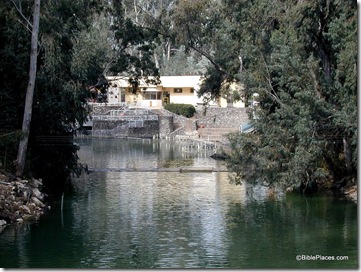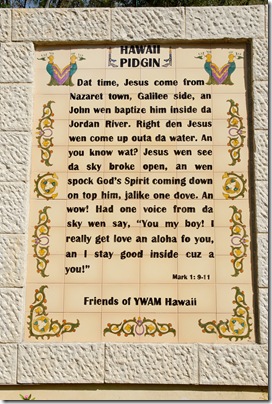Unless urgent action is taken, large sections of the Lower Jordan River, which runs from Lake Kinneret to the Dead Sea, will dry out next year, according to a study released on Sunday by EcoPeace/Friends of the Earth Middle East (FoEME). The NGO ran tests over a year to determine how much water would be needed to rehabilitate the river and damage had been caused by the lack of water in it. Israel, Jordan and Syria divert 98 percent of the flow for their respective country’s use. In the 19th and early 20th century, 1.3 billion cubic meters of water cascaded each year down rapids and rolled over waterfalls on the way down to the lowest point on Earth – the Dead Sea. In 2009, just 20 m.cu.m. to 30 m.cu.m of water pooled and sluggishly flowed through the river’s channels – all of it sewage. Sewage runs from Israel, the Palestinian Authority and Jordan into the river. However, two new sewage treatment plants, one in the Beit She’an area and the other in the Jordan Valley Regional Council area, are set to begin operating over the next year and a half. While FoEME praised the construction of the two plants, it warned that unless fresh water replaced the amounts of sewage water that would be removed, the once mighty Lower Jordan River would become a cracked and dry riverbed through much of its 100-km. length. […] The lack of fresh water has also destroyed much of the ecosystem both within and next to the river, the study found. Fifty percent of macro-invertebrates have disappeared because the river no longer flows swiftly and is highly saline. Examples of macro-invertebrates include flatworms, crayfish, snails, clams and insects. Otters have disappeared from the Jordan and the willow trees that once lined its shores have all disappeared, FoEME Israel Director Gidon Bromberg said during a media tour of the river on Sunday. FoEME determined that 400 m.cu.m. of water each year would be needed to rehabilitate the river, gradually rising to 600 m.cu.m. In addition, the river would have to flood once a year to rehabilitate the shores. The river has not flooded since the winter of 1991-92, Bromberg said.
 Russian pilgrims at Jordan River (source)
Russian pilgrims at Jordan River (source)
